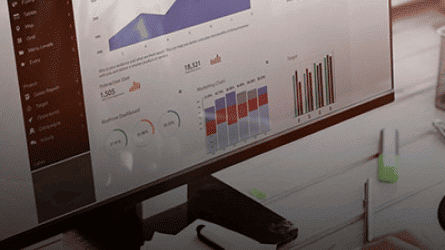Agility, a leading global logistics provider, today reported second-quarter earnings of13.4 fils per share on net profit of KD 16.8 million, an increase of 12.8% and 12.1% respectively over the same period in 2016. Agility EBITDA grew 14% to KD 32.6 million. Revenue increased 10.9% to KD 342.1 million.
First-half earnings of 24.9 fils per share and net profit of KD 31.4 million were up 12.1% and 11.6% respectively from first-half 2016. First-half EBITDA was KD 63.4 million, an increase of 15.6%. Revenue for the first half was KD 662.6 million, an increase of 9.1%. The results are in line with the company’s long-term guidance.
Tarek Sultan, Agility Vice Chairman and CEO, said: “Agility’s Infrastructure group was the primary driver of performance in Q2. Our industrial real estate business and aviation services company delivered particularly strong results. Revenue in our logistics business is growing because air and ocean volumes are increasing and contract logistics revenue is expanding, but rate pressure continues to affect profitability.”
Agility Global Integrated Logistics (GIL)
Revenue for Agility Global Integrated Logistics (GIL), the company’s core logistics business, grew 9.6% in Q2, to KD 255.2 million. Air and ocean revenue grew, driven by volume growth of 14.7% and 12.9% in air tonnage and ocean TEUs respectively. These growth rates are above market average. Contract logistics revenue also grew, particularly in the Middle East and Asia Pacific, with the improved performance coming from a combination of new and existing warehousing facilities.
Net revenue in Q2 was flat compared to the same period a year ago, primarily due to significant yield degradation in freight forwarding because of capacity constraints and higher market rates. Net revenue margins contracted to 24.9%compared with 27.3% in Q2 2016. EBITDA decreased 5.8% to KD 9.1 million in Q2 for the same reason.
GIL continues to grow by committing to defined solutions, customer segments, sales productivity and efficient trade lane development. In addition, GIL is driving its transformation by building technology that enables efficiencies and boosts productivity for the customer and operations. GIL continues to be strongly focused on managing its costs in a disciplined manner.
Agility’s Infrastructure Companies
Agility’s Infrastructure group EBITDA rose 7.4%, to KD 27.5 million in Q2. Revenue grew 12.1% to KD 89.1 million. Agility Real Estate, National Aviation Services (NAS) and Tristar were the main factors in the group’s growth.
Agility Real Estate increased revenue 11.6% in Q2. It is developing new warehouses across the Arabian Gulf countries and Africa.
Tristar showed healthy revenue growth of 13.5% for the quarter, driven by new shipping contracts and its recent E-ships acquisition.
NAS grew its revenue by 17%. NAS continues to expand its presence in Africa and is performing well in Cote d’Ivoire and growing in Afghanistan.
UPAC revenue grew 6.5% as the company focused on its income-generating projects in Kuwait, where it manages commercial space at the Kuwait International Airport, Sheikh Saad Terminal, and Discovery Mall.
Recap of Agility Q2 Financial Performance
• Agility’s net profit increased 12.1% to KD 16.8 million in Q2 2017. EPS was 13.4 fils vs.11.9 fils a year earlier.
• EBITDA increased 14% to KD 32.6 million.
• Q2 revenue rose 10.9%, to KD 342.1 million and net revenue increased by 9.6%.
• GIL revenue grew 9.6% while EBITDA fell 5.8% (4.5% on a constant currency).
• Infrastructure’s revenue grew 12.1% to KD 89.1 million, compared with Q2 2016.
• Agility enjoys a healthy balance sheet with KD 1.6 billion in assets. Net debt position was KD 109 million as of June 30, 2017. Operating cash flow was (KD 4.3) million for the first half of 2017, due to the global settlement of the U.S. government food-supply contracts.
Summary
To achieve its 2020 EBITDA target of $800 million, Agility has two areas of focus. First, it is investing in its Infrastructure businesses in emerging markets. Second, it is continuing to improve the underlying fundamentals of its commercial logistics business, particularly in technology-driven transformation of its processes and development of online solutions for customers.
Sultan said continued earnings growth will be driven by operations and by a reduction in legal fees that we anticipate as a result of the settlement of the U.S. case. The impact of lower legal fees will be partially reflected in Q3 before realizing the full impact starting Q4, he said.
“Investments in Infrastructure businesses will limit free cash flow,” Sultan said. “The company is moving toward a ring-fenced net debt position to finance these investments in the future.”
Sincerely,
Investor Relations Department
Agility Public Warehousing Company

